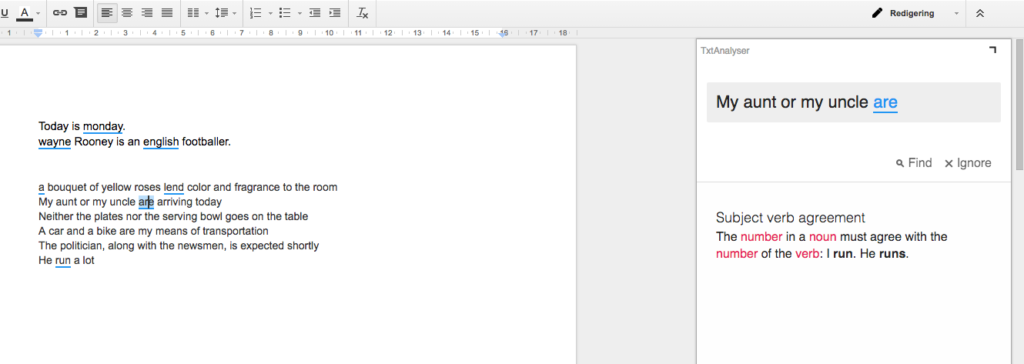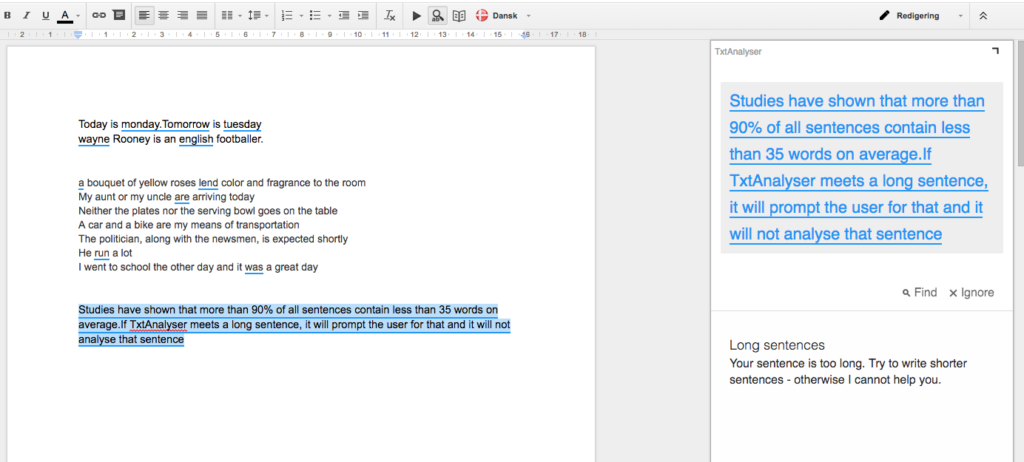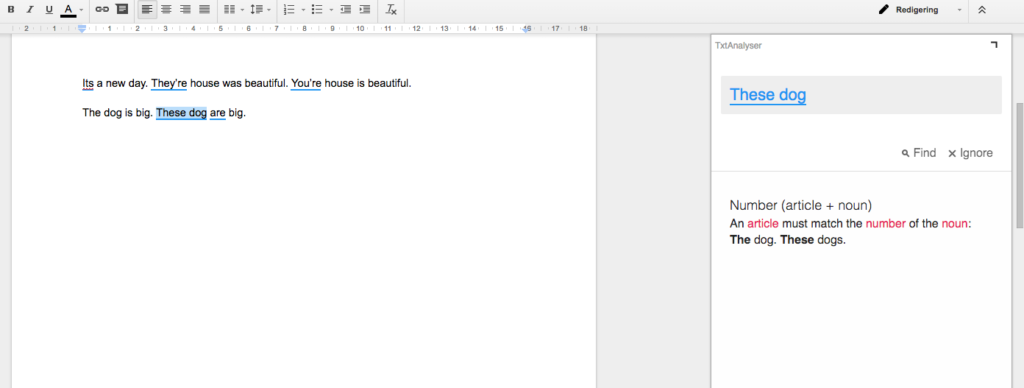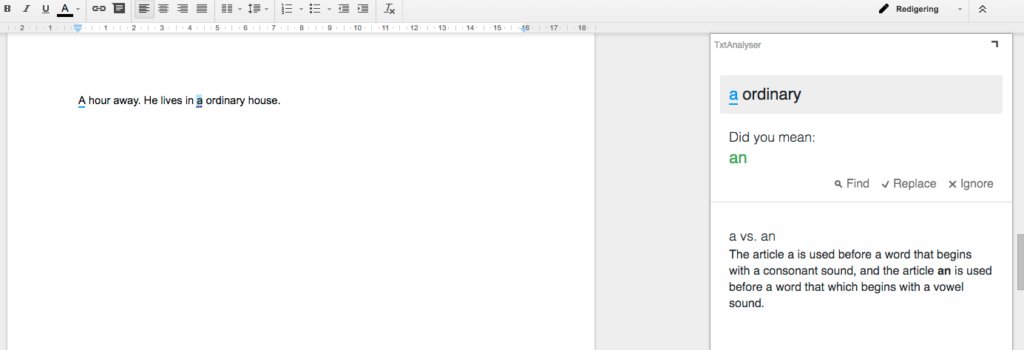Categories
TxtAnalyser automatically identifies and corrects mistakes within the following categories for British English:
- Capital letter
- Subject/verb agreement
- Contextual spell check
- Punctuation
- Homophones
- Article/noun agreement
A category may have one or more subcategories. This enables TxtAnalyser to analyse and log errors on a more detailed level.
1. Capital letter
The category capital letter contains the following subcategories:
- Start of sentence
- Proper noun
- Title
- Weekday
- Month
- Nationality
- First person pronoun
When you start a sentence with a lowercase letter or when you write a name, title, weekday, month or a word referring to nationality with a lowercase letter, TxtAnalyser will analyse it as an error and suggest the word with the correct spelling.

2) Subject/verb agreement
Subjects and verbs must agree in number. Within a given set of rules, TxtAnalyser will automatically identify and correct errors in subject/verb agreement.

3) Contextual spell check
The category spell check contains the following subcategories:
- Uppercase
- Homophones
- Non word
Phonetic spelling error
Uppercase triggers when a word is written in an incorrect case, e.g.
I wENT for a WALK.
Homophones are words that sound alike but are spelled differently, e.g.
She walked down the isle.

The error is identified as a homophone, and the correct alternative is suggested.
Finally phonetic spelling errors are words that are spelled incorrectly, but can still be pronounced as a correctly spelled word.
Non word is the last of the three subcategories. An error will fall into this category, if it does not fall into neither of the first two subcategories, and if it does not look like a correctly spelled word.
4) Punctuation
This category contains the following subcategories:
- Missing space after period
- Missing space after comma
- Multiple whitespace
- Long sentences
- Genitive apostrophe
The first three subcategories log errors if a user enters multiple whitespace or forgets to enter a whitespace after a sentence period or a comma.

The fourth subcategory logs long sentences. The maximum limit for a long sentence is set to 35 words. Studies have shown that more than 90% of all sentences contain less than 35 words on average. If TxtAnalyser meets a long sentence, it will prompt the user for that and it will not analyse that sentence.

Finally, genitive apostrophe handles apostrophe as either ‘, ‘s or ‘s.
5. Homophones
This category contains the following subcategories:
- its vs. it’s
- your vs. you’re
- their vs. they’re
TxtAnalyser automatically determines the correct form of the homophones, and it provides an explanation of when to use e.g. your or you’re.

6. Article/noun agreement
Articles and nouns must agree in number. TxtAnalyser automatically identifies and corrects issues related to article/noun agreement.

7. Article
This category checks for the correct use of the articles a and an.
